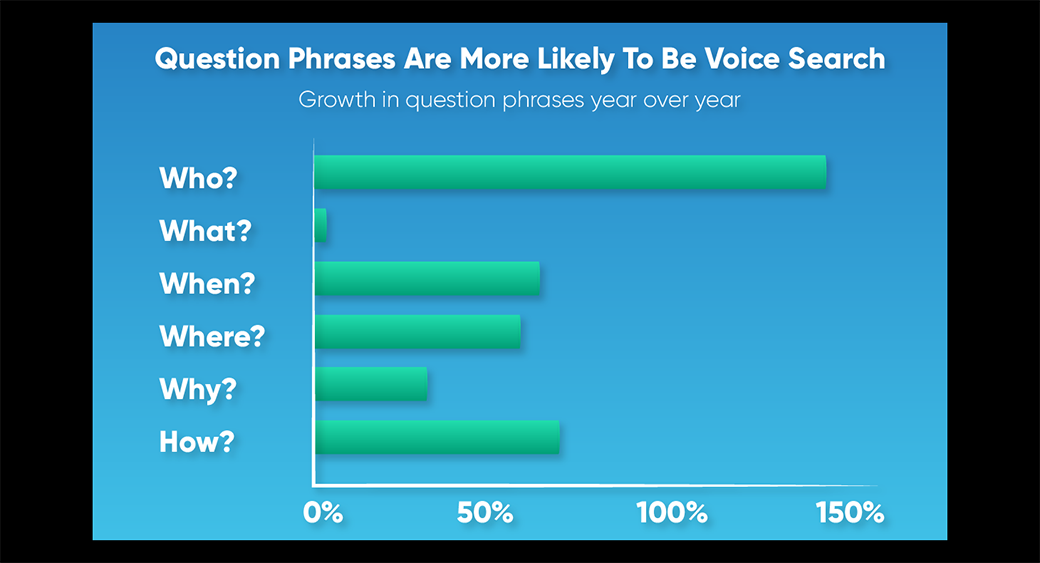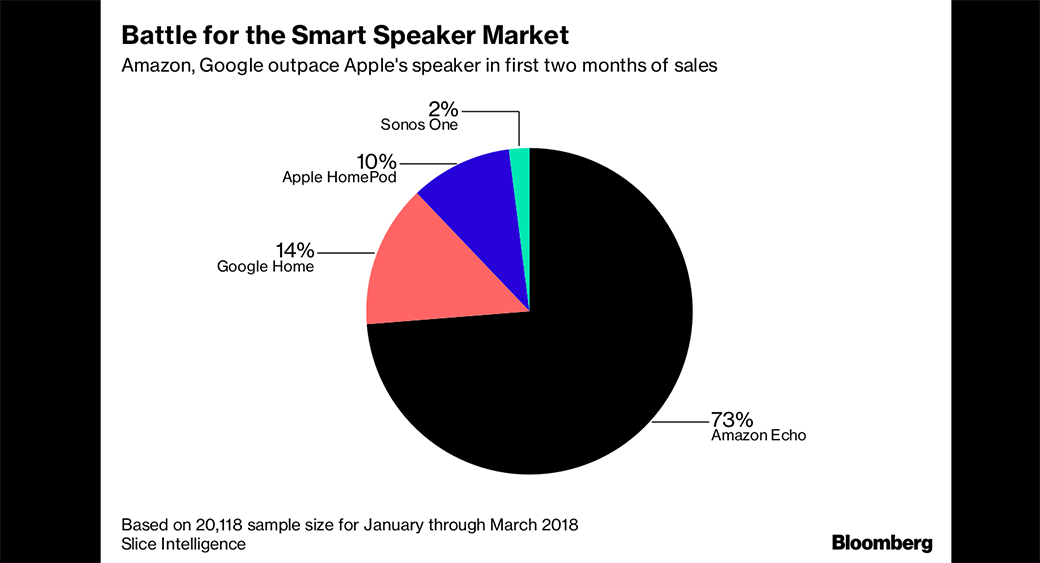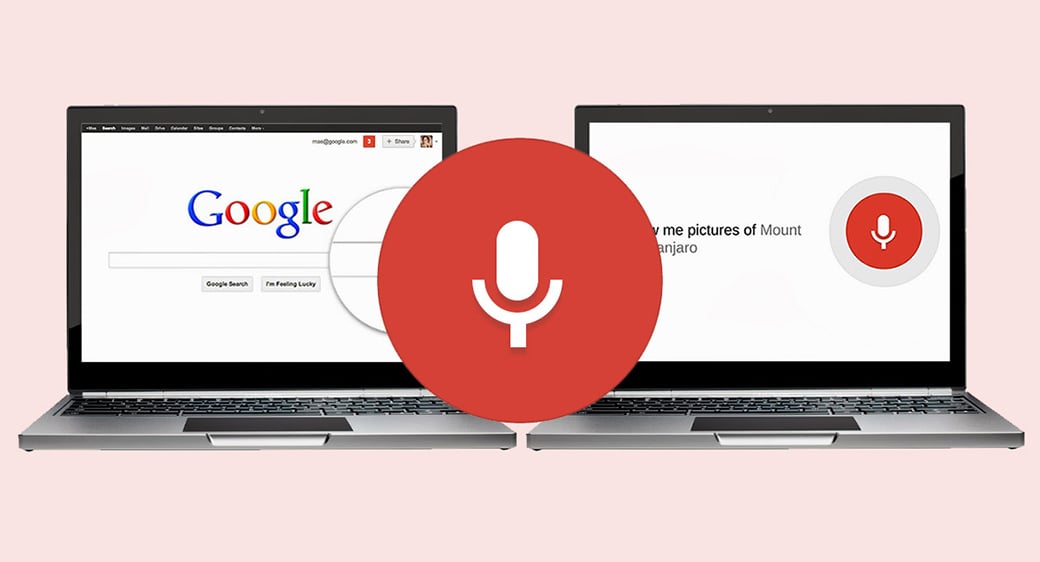Voice Search Statistics and Facts for Better UX and SEO Performance
The history of voice search dates back to 1961 when the first speech recognition system, IBM Shoebox, was introduced, paving the way for outstanding advancements in the field. According to the voice search statistics, voice search usage has grown exponentially over the years and today, 325 million people rely on virtual assistants to perform a variety of tasks from finding deals to making appointments and everything in between.

Based on research done by SEO Tribunal, below are some of the reasons why Internet users are massively adopting voice search:
- It provides accurate results – Currently, voice search statistics show that the speech rate is 95% accurate but projections are this rate will soon jump to 99%, making voice search the primary way we interact with computers.
- It’s convenient – We speak faster than we type, so voice search is a faster and easier way to perform a search. In addition, virtual assistants are now more conversational than ever and keep track of previous questions, streamlining the search process.
- It’s easy to multitask – In a large part, the popularity of voice search has grown because of the ability to perform multiple tasks at the same time. In fact, 52.18% of users have used voice search while driving, 7.4% while working, and 5.5% while cooking.
- It’s mobile-friendly – Nowadays, virtual assistants are integrated into most of the smartphones by default which means you can use them wherever you go.
Undoubtedly, voice search will continue to evolve as more and more people adopt it. In the light of it, here are some of the most important voice search statistics and facts you should consider:
Millennials Drive the Growth of Voice Search
People have adopted this rising trends mainly because of the mobile nature of our lives but also because of the convenience it brings.
Not surprisingly, millennials are dominating the voice search. More specifically, 35.8% of them have used voice-enabled assistants in 2018, and this number will increase to 39.3% in 2019.
By contrast, only 16.7% of the Gen X population uses voice search. However, according to recent voice search statistics, this rate will jump to 17.2% in 2019.
On the other hand, there were 9.9% baby boomer voice search users in 2018 and this number is predicted to increase by 2% in 2019.
What People Search for
Google voice search stats show that 40% of adults use the voice-activated technology for directions, while 43% of teens use voice search to perform a call.

78% of teens using voice search say that they use it because it’s safer and 73% of them say it makes them more efficient. On the other hand, 76% of adults said voice search is safer but only 62% said it made them more efficient.
The majority of voice search users, more precisely 52% of them, use virtual assistants to discover sales, promos, and discount codes.
According to current voice search statistics, 48% of users perform voice search when looking for personalized tips and info, while 42% of them search for events and activity information.
Business information, such as open hours or store location, is searched through voice-activated assistants by 39% of voice search users.
Customer Gender Influences Voice Search Statistics
Male smartphone owners are the heaviest voice search users, but the gender gap is getting to a close.
Voice search statistics show that 66% of them have utilized voice-enabled technology at least once. Similarly, 53% of male desktop and laptop users, 49% of tablet users, and 46% of smart speaker users have taken advantage of the virtual assistants.
To draw a comparison, in 2018 55% of female smartphone owners, 30% of desktop and laptop users, as well as 31% of tablet and 26% of speaker users have utilized voice search.
Mobile Voice Search Statistics
The increased usage of mobile devices is in large part responsible for the growing popularity of voice search. Still not convinced? Consider this:
- 1 in 5 adults uses mobile voice search at least once a month
- 25% of individuals aged 16-24 use voice search on mobile
- In 2016, Google voice search statistics showed 20% of all searches made with the Google app and on Android in the US are voice queries
- 88% of all “near me” searches are made on mobile.
Local Searches and Voice Search

Voice search is often used when people want to find something nearby. Let’s see this through some voice search statistics:
- 22% of voice queries are for local content and “near me” searches have grown more than 130%.
- The frenetic rise of smartphone use streamlines the local voice search use. Smartphones know the location and provide searchers with accurate local results for the search queries.
- 27% visit a local business website through voice search.
- In 2017 58% of the consumers have used voice search to find local business information.
Voice Search and Smart Speakers

Smart speakers are correlated with voice search. Here are some numbers that prove this notion:
- 72% of people owning a smart speaker say they use their devices on a daily basis.
- Google voice search stats claim that 41% of people who own a voice-activated speaker say it feels like talking to a friend or another person.
- In 2017, 8 million smart speaker devices were shipped out, adding to the circulation total to 45 million devices.
- 70.6% of Americans who used a voice-enabled speaker at least once a month in 2017. Google voice recognition device, Google Home, was used by 23.8% of them.
- 52% of smart speaker owners would like to receive information about deals, sales, and promotions from brands. 39% would like to receive options to find business information.
Which Virtual Assistants Dominate the Market
According to the annual digital assistant IQ test performed by Loup Ventures, Google Assistant is most accurate, as it answered 86% of 800 questions correctly.
The second runner is Siri with 79% of the queries answered correctly.
Alexa showed 61% accuracy of answers, while Cortana came through with 52.4% correct answers on the same number of questions.
Future Predictions
As voice search becomes more and more locally and mobile-focused, digital assistants are more integrated into our daily lives. This trend will continue to rise and projections show 50% of all searches will be voice activated by 2020.

Technology such as Google voice recognition device, Google Home, Amazon Alexa for Echo, and software development kits from Microsoft will make it possible 30% of all searches to be screenless.
What is more, in just two years, the voice recognition market is projected to reach $601 million.
What this Means for Digital Marketing Landscape
A few years ago, adopting a voice search strategy was a matter of choice. Now, considering these mind-blowing voice search statistics, it’s a must. It`s especially important if you are aiming to level up your SEO game and provide the ultimate user experience.
In the years to come, the way consumers search for and receive information will continue to evolve with voice search, empowered by AI, having a huge impact on accessing information and performing a search.
Wrapping It up: Focus on Voice Search SEO
Make no mistake, voice search is not a passing trend. Voice-enabled search is here to stay and reshape the future of SEO. Here are some pro tips to consider when considering voice search SEO:
- Include long-tail keywords to contextualize the content.
- Use keywords in question form because usually, voice queries are questions.
- Make sure your page load quickly – the average voice search result page loads in 4.6 seconds.
- Create a detailed FAQ page.
- Provide simple and concise answers.
- Create long and highly relevant content – Voice search statistics show that the average word count of voice search result page is 2,312 words.




Leave a Reply